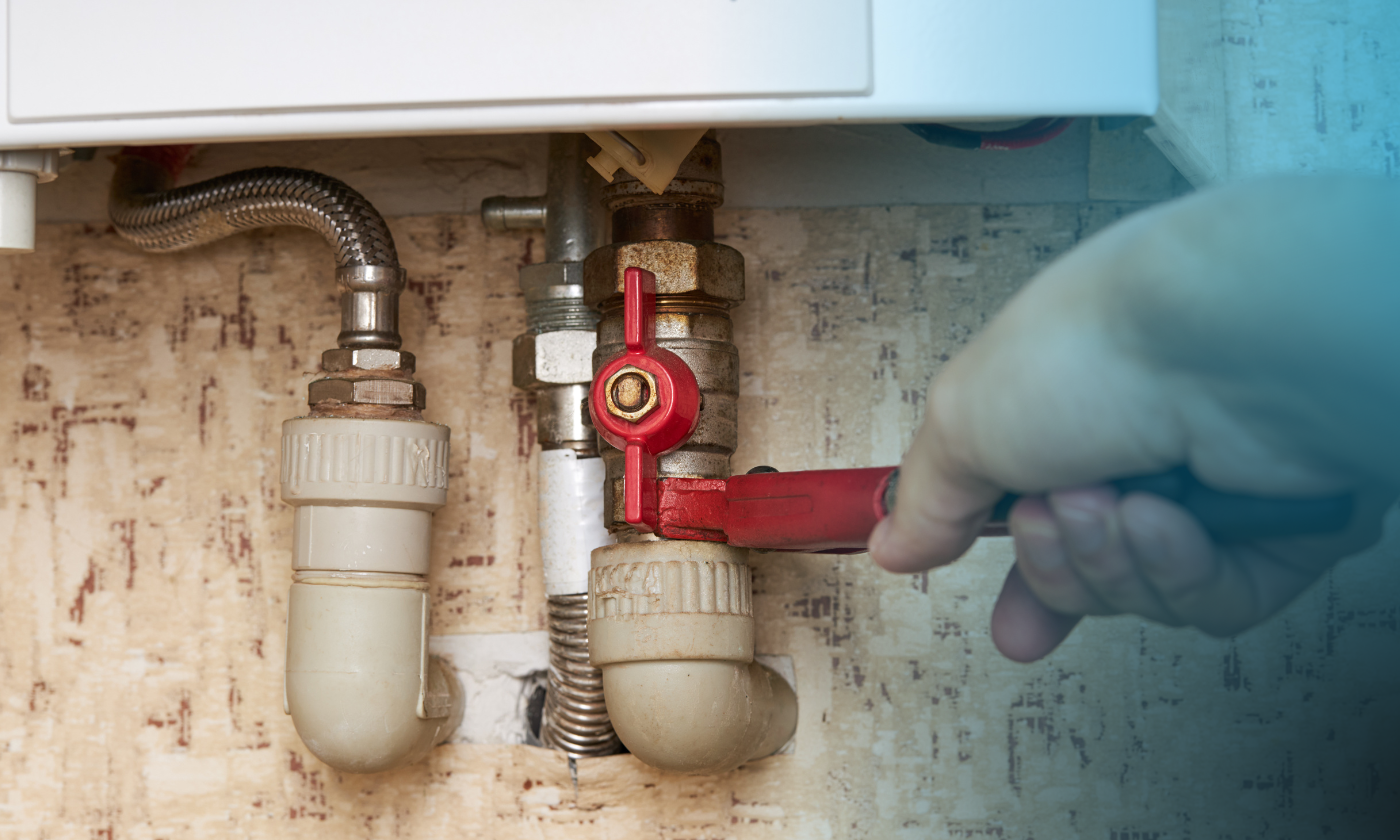Can you tell if there’s a natural gas leak in your home? This is a crucial question you should be able to answer to ensure your safety.
Natural gas is one of the safest fuels to use in your home, providing more than half the homes in the United States with heat and the ability to cook food, dry clothing, and heat water. However, if your gas line is improperly installed or maintained, a leak can threaten the health and safety of your household. This makes natural gas leak safety precautions all the more important.
Besides doing what you can to prevent a gas leak, it’s essential to know how to detect one and what to do if you suspect one is present. There are three steps everyone should follow to correctly detect a natural gas leak in their home.
Looking
There could be multiple signs of a leak if you know what to look for.
Signs of an unsafe natural gas appliance are usually the most common ways to detect a leak, but there are a few others to be on the lookout for.
A few common signs include:
- Visible damage to your gas line
- Dying house plants
- Bubbles in standing water
But natural gas leaks can also cause more obscure and bizarre occurrences. For instance, a gas leak can cause areas in the ground to dry up as it removes moisture from the soil and other surfaces. So if you notice random dry patches on the ground, that could indicate a potential leak.
Under high pressure, escaped natural gas can form a pressurized jet and move light materials and substances in one direction in an unusual manner. So keep an eye out for a localized “breeze” that doesn’t have a clear source.
High levels of leaking gas can incite strange behavior from pets and people as well—tiredness and fatigue, loss of appetite and vomiting are all possible signs of a natural gas leak.
Lastly, natural gas is flammable, which is one of the reasons a leak can be so dangerous. A gas leak may catch fire, creating a flame that appears to have no obvious source; it can look like it’s floating in midair. This is a dangerous situation as the gas is already aflame.
While there can always be a different cause for some of these incidents besides a natural gas leak, it’s always better to be safe than sorry.
Listening
Natural gas pipes can crack or break, releasing natural gas through the new opening at a fast rate. Because of the high speed and pressure, this type of leak often makes an audible noise. If you hear a strong noise—like a pop, crack, hiss, roar, or whistle—stop moving for a minute and focus on the noise. If you know where the gas line is, try to identify if it is the cause of the noise. A hiss, roar, or whistle that’s out of the ordinary could indicate a high-pressure leak, especially if it’s close to a pipe.
If you hear a hissing noise around your natural gas piping, meter, or appliances, or if your natural gas appliance fails to ignite, you very likely have a gas leak and should call a professional.
Smelling
While natural gas on its own is odorless and colorless, most providers purposely add a potent artificial smell, mercaptan, to their natural gas to help you identify a leak. If you notice the smell of rotten eggs, sewage, or a skunk in your home, you could be experiencing a natural gas leak.
While this odor is used to help people identify leaks, many make the mistake of relying wholly on their sense of smell to identify leaks, and this is a mistake.
Sometimes physical or chemical processes can cause a loss of odorant in natural gas, making it undetectable by smell. Some people also may not be able to smell the odor because they have a diminished sense of smell, nasal fatigue, or because other scents, such as candles or air fresheners in the area, hide the odor. Odor fade can be caused by adsorption, absorption, oxidation, or any combination of all three.
So, keep the smell in mind, but don’t forget your other senses!
What Do I Do Next?
Using smell, sight, sound, and other indicators to determine the presence of natural gas is a great way to nip the problem in the bud before it gets out of hand. That said, we recommend using a natural gas detector since they are designed to identify leaks much sooner than a human can.
With a natural gas detector and a strong knowledge of what to look, smell, and listen for, you can rest assured that any leaks will be detected promptly. And the sooner you can identify whether there’s a leak, the sooner you can get it fixed, preserving your home’s safety and value.
If you do suspect a natural gas leak in your home, rule #1 is not to attempt to stop it or put it out on your own. Don’t turn on any electronics, appliances, lights, air conditioning, or ignition sources, including your vehicle. Natural gas is highly flammable and can be ignited by heat, sparks, or flames.
Next, evacuate your home with your family and pets and call 911 or your gas provider’s 24-hour emergency line from a safe distance. Don’t assume someone will call on your behalf.
Why Every Home Needs a Natural Gas Leak Detector
Natural gas safety is essential if you want to continue using your preferred energy source. Natural gas is relatively safe, efficient, and convenient, but sometimes incidents can happen. The most surefire way to maintain your peace of mind and know if there is a leak in your home is with a natural gas alarm. It can be challenging to pinpoint the presence and source of a natural gas leak, but using a detector makes the process easier, giving you more time to ensure your safety.
Following these safety measures can protect your household if a natural gas leak ever occurs. If you want to learn more ways a natural gas alarm can keep you and your family safe, contact us at support@denovadetect.com.




Leave a comment
This site is protected by hCaptcha and the hCaptcha Privacy Policy and Terms of Service apply.